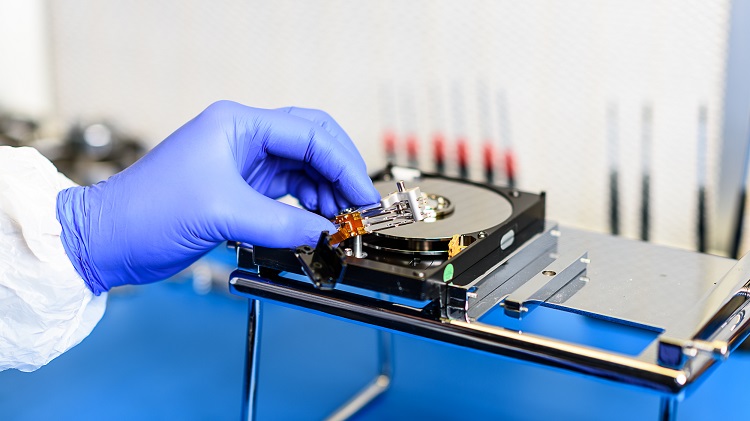Data Recovery Companies: A Comprehensive Guide to Understanding Their Role
In our data-driven world, losing important information can be a major setback, whether it’s a cherished family photo, crucial work documents, or vital business records. When it comes to retrieving lost files, the best data recovery companies offer unparalleled expertise and reliability. This article provides a general overview of data recovery companies, exploring their functions, services, and what to consider when choosing the right one for your needs.
What Are Data Recovery Companies?
Data recovery companies specialize in retrieving data that has been lost, corrupted, or damaged from storage devices. These devices can include:
- Hard Drives: Traditional spinning hard drives and solid-state drives (SSDs).
- Flash Drives: USB drives and other portable storage devices.
- Memory Cards: SD cards and microSD cards used in cameras and smartphones.
- RAID Arrays: Complex storage systems used by businesses for redundancy and performance.
Why Data Recovery Matters
Data loss can occur for a variety of reasons, including:
- Accidental Deletion: Mistakenly deleting files or folders.
- Hardware Failure: Mechanical issues with hard drives or SSDs.
- Software Corruption: Problems with the file system or operating system.
- Physical Damage: Damage from drops, spills, or other accidents.
- Malware and Viruses: Attacks that corrupt or delete data.
When data is lost, recovery services are often the only option for retrieving it. Data recovery companies have the expertise and tools necessary to recover data from damaged or corrupted devices.
Services Offered by Data Recovery Companies
Data recovery companies offer a range of services tailored to different types of data loss and devices:
Hard Drive Recovery
o Mechanical Repairs: Fixing physical issues such as head crashes or motor failures.
o Logical Recovery: Addressing file system corruption or accidental deletion.
SSD Recovery
o Firmware Issues: Recovering data from SSDs with firmware problems.
o Data Extraction: Extracting data from damaged SSDs.
RAID Recovery
o Array Reconstruction: Rebuilding RAID arrays to recover data.
o Data Retrieval: Recovering data from failed or degraded RAID systems.
Flash Drive and Memory Card Recovery
o Corruption and Damage: Recovering data from corrupted or physically damaged flash drives and memory cards.
o File Retrieval: Extracting files from damaged or inaccessible storage media.
Mobile Device Recovery
o Smartphones and Tablets: Retrieving data from mobile devices with software issues or physical damage.
Cloud Data Recovery
o Cloud Services: Recovering data stored on cloud platforms, such as Google Drive or iCloud.
Choosing the Right Data Recovery Company
Selecting the right data recovery company is crucial for successful data retrieval. Here are some factors to consider:
Reputation and Experience
o Look for companies with a strong reputation and extensive experience in data recovery. Research customer reviews and testimonials to gauge their reliability and effectiveness.
Specialization
o Ensure the company specializes in the type of recovery you need, whether it’s hard drive, SSD, RAID, or mobile device recovery. Different types of data loss may require specialized techniques and tools.
Security and Confidentiality
o Choose a company that prioritizes data security and confidentiality. Your data should be handled with the utmost care and protected from unauthorized access.
Clear Pricing
o Choose companies that are upfront about their prices. Stay away from those with hidden fees or confusing pricing. Some companies offer free of cost diagnostics and only charge if they successfully recover your data.
Customer Support
o Good customer support is essential for a smooth recovery process. Choose a company with responsive and helpful customer service that can guide you through the recovery process and answer any questions you may have.
The Data Recovery Process
The process of recovering data typically involves several steps:
Initial Consultation
o Contact the data recovery company to describe the issue and provide details about the storage device and data loss.
Diagnosis
o The company will assess the device to determine the extent of the damage and the potential for recovery. This may involve a diagnostic fee.
Recovery Process
o If you approve the quote, the company will begin the recovery process using specialized tools and techniques. This may involve repairing physical damage, recovering deleted files, or extracting data from corrupted systems.
Verification
o Once the data is recovered, it is verified for integrity and completeness. You will be provided with a list of recovered files to ensure that everything is as expected.
Delivery
o The recovered data is transferred to a new storage device and returned to you.
Preventing Future Data Loss
While data recovery companies can help retrieve lost data, it’s best to take preventive measures to avoid data loss in the future:
Regular Backups
o Regularly back up your data to multiple locations, such as external hard drives and cloud storage.
Use Reliable Hardware
o Invest in high-quality storage devices and replace them as they age.
Install Security Software
o Protect your devices from malware and viruses with reputable security software.
Handle Devices with Care
o Avoid physical damage by handling your storage devices carefully and protecting them from extreme conditions.

